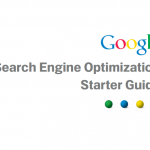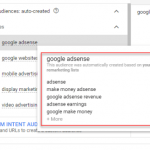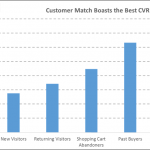Top 5 Takeaways From Google in 2016
— December 15, 2016
This has been a crazy year for tech in general. For Google and its parent company, Alphabet, 2016 marks a turning-point, the point when it’s clear Google is more than a search platform. Could this be the year in which the search giant moves its pieces into place to take Apple’s throne as number one tech company in the world?
Search still brings the bacon for Google. But we now know the company is serious about hardware and AI. Will the broadening of focus pan out? This year’s moves have made some analysts, such as Wall Street research firm Wedbush, skeptical about where Google stocks are headed. But make no mistake, because of solid decisions, Google stock (GOOG) will be a solid investment for 2017.
Here are some key takeaways from Google’s decisions, the decisions that exhibit quality business sense. You can always learn a great deal from the people who are best at what they do–even if what they do is as fantastical as a robot DJ mind-reader.
1. Don’t be afraid to change course

Up until now, Google has been doggedly pursuing its vision of a self-driving car with no steering wheel or pedals. But in a move that looks more practical, Google has decided to spin-off the self-driving venture with the creation of a side-company called Waymo.
Instead of focusing purely on the white whale of a fully operational and road-ready autonomous car, Google looks ready to use its partnership with Fiat Chrysler to start a ride-sharing service. For the service, Google has been fitting out Chrysler minivans with sensors to make them semi-autonomous. As a result of the partnership, fully autonomous Chrysler vehicles are down the line.
This is a smart move. Don’t let tunnel-vision skew your priorities. If you’re idealistic but there’s no return on investment and a more practical and accessible option is in your wheelhouse, take it. Conversely, if you’re practical but results aren’t spectacular, try aiming higher.
2. But keep innovating at what you do best
Google’s domination at the search engine game has always been responsible for its huge share of the advertising market. At the basic level, the science behind Google is about using algorithms to reward pages for having a lot of inbound links, a reasonable keyword concentration, content relevant to the search, and content relevant to the user’s location.
In 2016, Google’s RankBrain became a determining factor for search algorithms. It wasn’t enough for Google to be winning at search already. Artificial Intelligence had to up the ante. Machine Learning program RankBrain now comes into play in the processing of every search. To what extent it affects results is unclear. But it’s apparent that RankBrain helps Google better understand exactly where the user is coming from, particularly for unusual queries and those that could have multiple meanings.
This desire to constantly innovate and perfect a process is what sets a good company apart. It’s why Google looks poised to continue dominating at what it does best. If you’re open to new tools and if you stay on top of the newest developments, your business is bound to continue growing. Just remember to assess the viability of an innovation.
3. Procure top talent

Most recently, Google hired Lyor Cohen to take charge of YouTube. Cohen’s official title is “Global Head of Music”, which may be the most enviable job title on the planet besides “Genius” (Apple’s title for the service technician at retail stores). As former president of Def Jam and founder of 300 Entertainment, Cohen is more than qualified for the job. He’s not a tech guy, he’s a music industry legend experienced at working directly with artists. This show’s Google is working hard at matching talent with job requirements instead of hiring inside from the tech world.
In any industry, not just tech, finding the right person for the job can be a real headache. Web development company Appnovation recommends taking a proactive approach to acquisition: “understand who the right person is, why they are the perfect fit, and how you can ensure that they excel in all that they do for the company.” Proactivity involves strategizing, taking a close look at who candidates are, as well as what type of personality and experience is best for a position. Then meet them halfway. Ensure success by providing the most comprehensive training, the best tools, and a positive work atmosphere.
4. Diversify and challenge competitors

In terms of brand identity and product, this year Google took a big step to challenge other top brands in tech. The new hardware releases are diverse and broad-reaching, which shows a high level of confidence and competitiveness.
The Pixel XL phone aims to topple the iPhone, with a 12.3 megapixels resolution on the camera that easily competes with iPhone 7 Plus. The Daydream View VR headset has a much more affordable price tag than Facebook’s Occulus Rift, and it integrates with the Pixel phone. Google Home is a smart speaker with AI that sounds off against Amazon Echo, and Google Assistant wants to be smarter than Apple’s Siri.
Challenging the competition is a hallmark of any quality business. Initial attempts might be derivative, but they’re nonetheless competitive. To learn from your competition:
- Identify your primary competitors
- Dive deep into a competitive analysis
- Craft a strategy
- Keep careful tabs on your KPIs
You may find your competition is doing something you don’t do. If you’re daring enough, you’ll meet them head-on and offer a better product, a better price, a better service.
5. Be transparent
A company as big as Google with as much power as Google has to be transparent to the public. Otherwise, how can we trust them? As part of this transparency, Google published eight National Security Letters (NSLs) from the FBI. The letters demand access to content from 20 user accounts. Google redacted the names of the individuals under investigation, but notified those individuals privately. The tech company fought in court to be able to tell WikiLeaks employees they’re being investigated, and plans to set up a spot in their transparency report for NSL disclosures.
In regards to transparency, your company isn’t in the same boat as Google–no one is. But transparency and communication are great ways to establish a relationship of trust with your employees. The same goes for your relationship with the public. The higher the level of communication, the higher the level of engagement you can expect. It’s like telling a story. The details make the difference.
Digital & Social Articles on Business 2 Community
(41)













